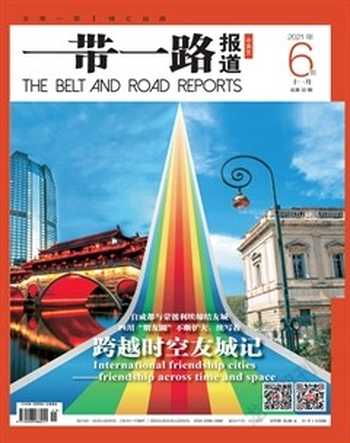以生态文明引领全球多边主义之路
王义桅 陈超
“長安百花时,风景宜轻薄。”生物多样性不仅描绘在中国传统花鸟图中,以四季花卉、鸟禽虫鱼展现大自然生物多样之美,还体现在中国天下无外、天人合一的传统哲学和生态文明理念当中,是人类文明的魅力所在。
中国是世界上最大的发展中国家,也是第一大能源生产国和消费国。中国要在未来40年先后实现碳达峰、碳中和目标,这一重大承诺体现了中国实现减排目标的艰苦努力和巨大牺牲,表明了中国决心和致力于解决人类面临的关键问题——气候危机。中国推动实现双碳目标、加强生物多样性保护、推进生态文明建设在于坚定不移贯彻新发展理念、在于集中力量办大事的制度优势、在于广泛动员各行各业内部力量,体现了一个民族对人与自然前途命运的主动担当。
中华传统文化历来主张“一多不分”,讲究人与自然是命运共同体。从多边主义实践来看,气候变化仍将是新型大国关系互动的重要基石。发达国家在生产方式、交通运输以及能源结构等方面的经验对中国应对气候变化具有重要的借鉴意义。中国正在经历产业范式巨大转变,实现新型、绿色的工业化还需要各方共同努力。在这一进程中,中国将扮演转换器的角色,推动将发达国家的高标准落实到发展中国家实际中,不断以中国发展为世界提供新机遇,共同构建地球生命共同体,共同建设清洁美丽的世界!
(王义桅系中国人民大学习近平新时代中国特色社会主义思想研究院副院长、国际关系学院教授、《一带一路报道》特聘专家;陈超系中国人民大学国际关系学院博士生)
As a verse in a poem penned by ancient Chinese poet Liu Yuxi says, “Blooming flowers are in a riot of colors; Changan scenery in spring pleases eyes.” Biodiversity is a recurrent motif of traditional Chinese bird-and-flower painting that uses a lot of seasonal flowers, birds, beasts, insects, and fish to depict the natural beauty of biodiversity. Biodiversity is also embodied in the concepts of traditional Chinese philosophy and ecological civilization such as “inclusion of all” and “unity of man and nature”. It can be said that biodiversity is a reason why human civilization can hold fascination.
As the worlds largest developing country and energy producer and consumer, China aims to hit peak emissions before 2030 and go carbon neutral by 2060. This ambitious aim speaks volumes about Chinas painstaking efforts and substantial sacrifices to mitigate carbon emissions and Chinas firm determination and commitment to solve the most pressing challenge facing humankind—climate change. To realize the goal of carbon emissions peak and carbon neutrality, strengthen biodiversity protection, and move forward with ecological civilization, it is necessary for China to follow through upon the new development philosophy, give full play to the socialist systems advantages which enable us to concentrate resources to accomplish large undertakings, and galvanize the forces from all walks of life. It shows that the Chinese nation is active in contributing to the bright future of man and nature.
Besides, the traditional Chinese culture advocates the holistic perspective that believes man and nature have a shared future. From the view of multilateralism practices, climate change will continue to form the important bedrock of the new type of major-power relationship. Developed countries experience in ways of production, transportation, energy mix, and other aspects will provide China with important food for thought to deal with climate change. At the moment, China is experiencing profound changes in the industrial paradigm, and needs to synergize forces from all walks of life to realize new and green industrialization. In the process, China will play the role of converter to implement the high standards from the developed countries in the developing countries. As China focuses on domestic development, China will create new opportunities for the whole world and contribute to the building of a shared future for all life on earth and a clean and beautiful world!
Wang Yiwei, Deputy Director of Institute of Socialist Thought with Chinese Characteristics of Xi Jinping and Professor at School of International Studies, Renmin University of China, and Distinguished Expert with The Belt and Road Reports
Chen Chao, Ph.D. student at the School of International Studies of Renmin University of China

